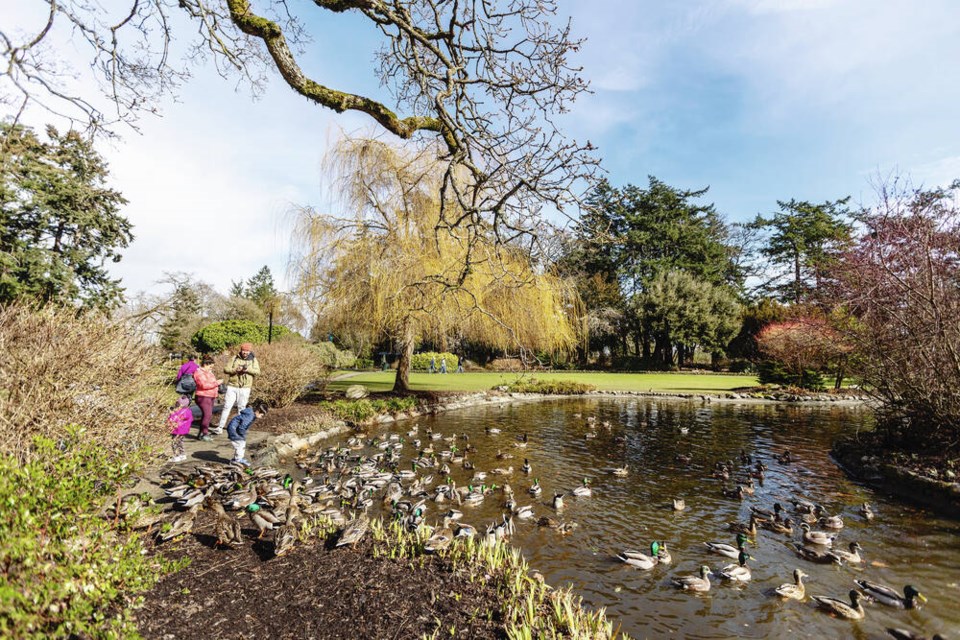The B.C. Court of Appeal has ruled that the trust governing Beacon Hill Park does not permit overnight campers. An appeal by the province, filed a year ago, had challenged that stance.
“In my opinion, the terms of the trust do not contemplate persons using the park for temporary sheltering,” wrote Justice John Hunter. He was supported by Justice Mary Newbury and Justice Peter Voith in a decision released Tuesday.
Joan Havorsen, president of Friends of Beacon Hill Park, called the ruling “fantastic news,” saying it had been a long journey through several legal proceedings since 2020.
“We remained true to our mandate to protect the park under the trust which governs it.
“Our thanks goes to all our members and donors who supported us in defending the park for the recreation and enjoyment of the public.”
Lawyer John Alexander, representing Friends of Beacon Hill Park, said that it’s clear the trust makes Beacon Hill Park “special” among city parks.
The park was established in 1882 through a 75-hectare Crown grant to the City of Victoria under a trust providing that it was for the use, recreation and enjoyment of the public.
The issue came to a head during the pandemic, when overnight shelters reduced the number of beds they offered to avoid transmission of COVID-19. As a result, many homeless people set up tents in Beacon Hill Park.
Victoria went to B.C. Supreme Court in 2021 to ask if people without homes could use the park for temporary sheltering under the terms of the trust. In February 2022, Justice Robert Punnett ruled that the trust was a contractual document that did not allow temporary camping.
The province appealed and the city did not take a position on the appeal. The B.C. Court of Appeal agreed with Punnett and dismissed the appeal.
In his ruling, Hunter said overnight sheltering is not a public use for recreation and enjoyment.
Interveners with Songhees and Esquimalt First Nations cautioned the court not to resolve the question in a way that would limit Indigenous rights, he noted.
How the trustees would respond to assertions of constitutionally protected rights that do not align with the trust’s terms could be determined if those issues were raised, based on the facts and law at the time, Hunter said.
>>> To comment on this article, write a letter to the editor: [email protected]



